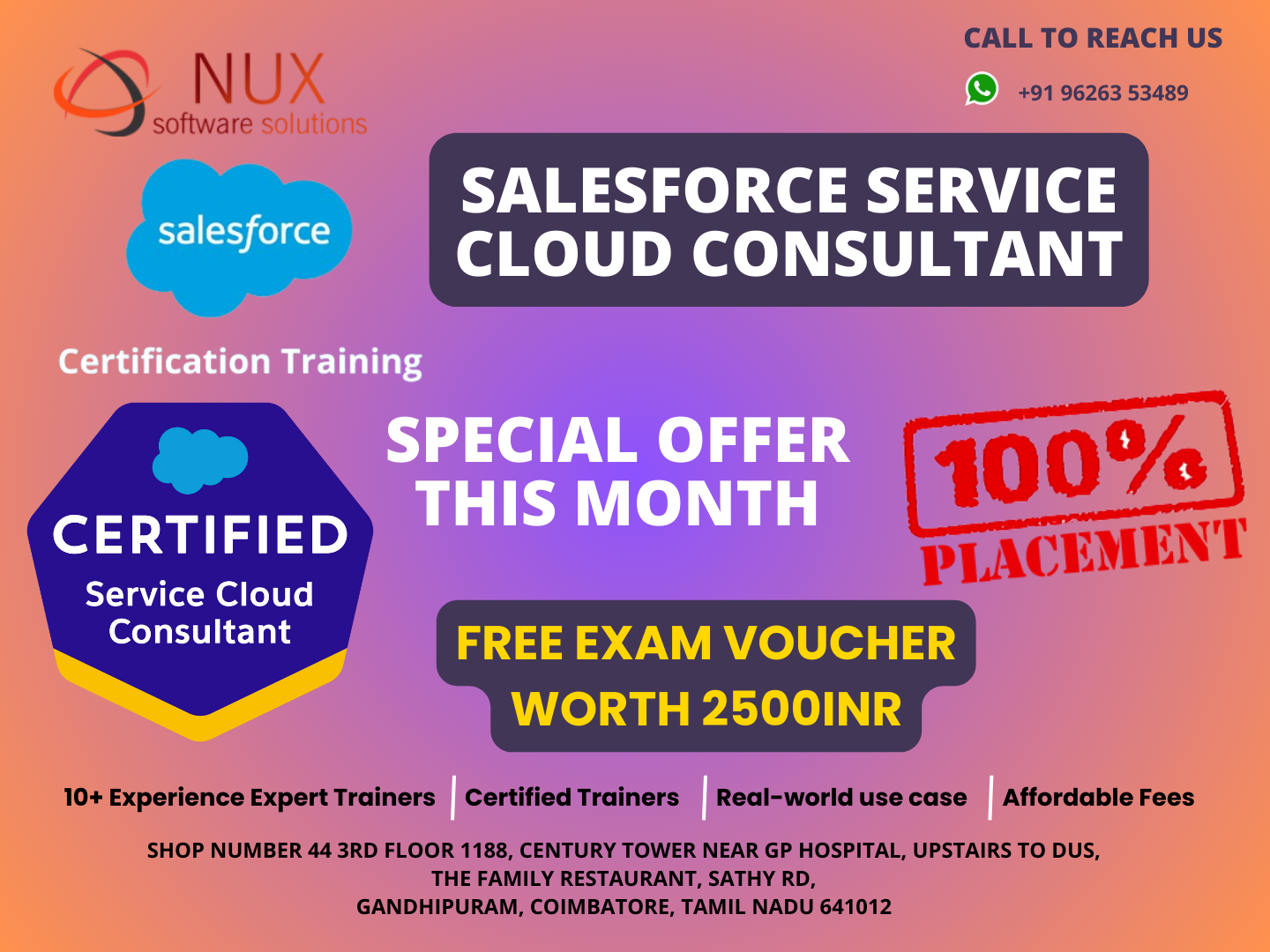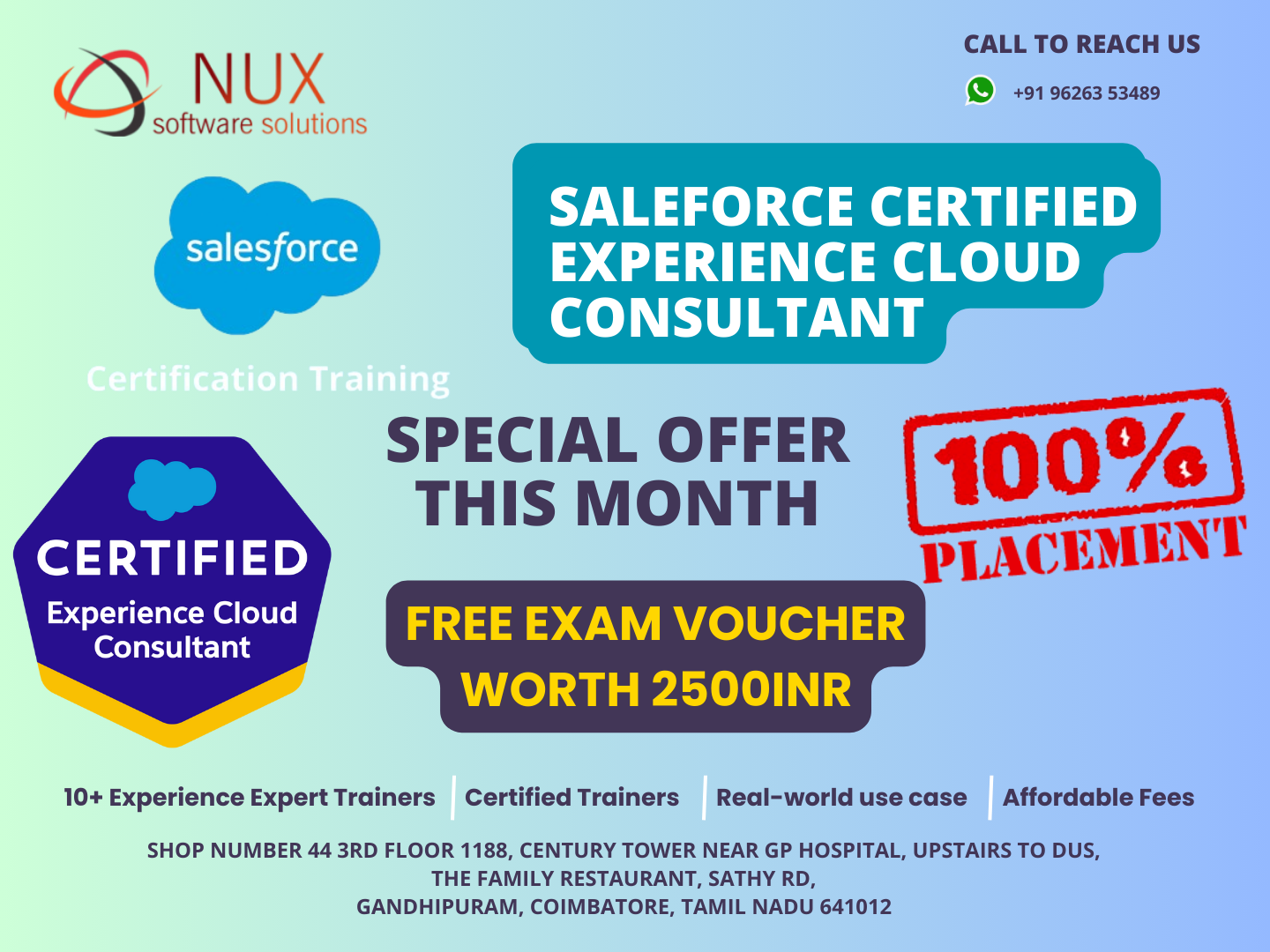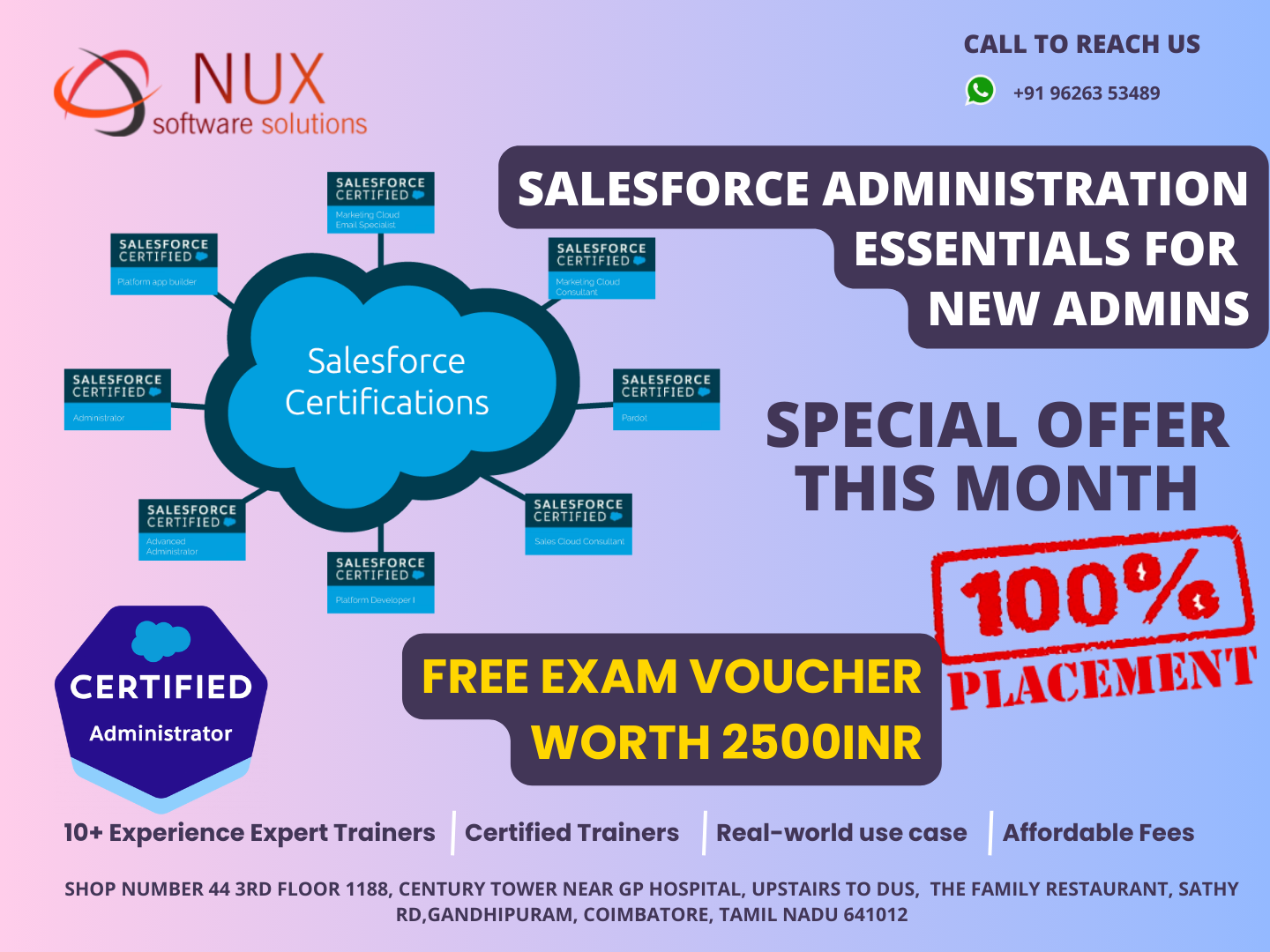Best Salesforce Service Cloud Consultant


Nux Software Training & Certification Solutions in Coimbatore seems to offer top-notch Salesforce Service Cloud Consultant training courses. Their excellent and advanced programs, coupled with industry-expert trainers, provide a comprehensive learning experience. The training center’s conducive environment caters to professionals, individuals, corporate clients, and those seeking live project and industrial training. The advanced and well-managed labs, accessible 24/7 from anywhere, enhance the hands-on experience. The presence of international expert trainers with real-time industry experience adds significant value to the training. With a focus on innovative learning methods and flexible training programs, Nux Software Training & Certification Solutions appears to be a reliable choice for career growth in the Salesforce ecosystem.
The Salesforce Service Cloud Consultant credential is crafted for individuals with experience in Salesforce who are dedicated to finding ways to optimize their companies’ use of additional features and capabilities within the Service Cloud. This certification is tailored for professionals who seek to deepen their expertise in leveraging Salesforce Service Cloud functionalities. It acknowledges their commitment to providing valuable insights, implementing best practices, and ensuring that their organizations derive maximum benefits from the Service Cloud features. By holding this certification, individuals demonstrate their proficiency in enhancing customer service and support processes through effective utilization of Salesforce’s Service Cloud capabilities.
Course Syllabus
Certified Salesforce Service Cloud Consultant Syllabus
Industry Knowledge - 10%
- Explain the factors that influence key contact center metrics, KPIs, and business challenges.
- Explain the use cases and benefits for different interaction channels.
- Compare and contrast the different types of contact centers and their business drivers (help desk, product support, telesales, service, field service/depot repair, B2C, B2B, etc.).
- Identify the benefits of a knowledge base.
Implementation Strategies - 15%
- Given a scenario, determine how to facilitate a successful consulting engagement (plan, gather requirements, design, build, test, and document).
- Given a scenario, determine appropriate contact center licensing and deployment strategies.
Service Cloud Solution Design - 16%
- Given a scenario, analyze customer requirements to determine an appropriate solution design considering capabilities, limitations, and design trade-offs.
- Distinguish the key components that contribute to performance optimization within a design.
- Given a scenario, understand the use cases and benefits for implementing CTI, Communities, and Salesforce Field Service.
Knowledge Management - 9%
- Explain the knowledge article lifecycle including creation, publishing, consumption, and feedback.
- Given business process requirements, determine the appropriate approach to manage Knowledge adoption and maintenance.
- Given a set of requirements, determine how to configure data categories, article record types, articles, and publishing workflow.
- Understand the key factors to consider when implementing a Knowledge data migration strategy.
- Given a scenario, describe the considerations when migrating from Knowledge to Lightning Knowledge.
Interaction Channels - 10%
- Describe the use cases and functionality for each interaction channel (Experience Cloud Sites, mobile, phone, email, web, chat, and social media.)
- Given business process requirements, determine the appropriate approach to case submission.
- Explain the design considerations (user interface, user profiles, objects to expose, sharing model, reporting, etc.) and best practices when configuring an interaction channel solution (mobile, phone, email, web, chat, or social media).
Case Management - 15%
- Given a set of requirements, design a case management solution from case creation to closure including case assignment, case escalation, case resolution, and case disposition.
- Describe the relationships between cases and other areas such as assets, entitlements, work orders, Experience Cloud Sites, Chat, and Knowledge.
- Given a set of KPIs, determine the appropriate case management solution.
- Explain the capabilities, use cases, and how to configure the service entitlements and milestones in Salesforce.
- Explain the use cases, capabilities, and limitations of Service Cloud automation (Salesforce Flow, quick actions, macros, quick text).
- Identify use cases and capabilities of Social Customer Service.
Contact Center Analytics - 5%
- Given a set of desired metrics, determine the appropriate reporting solution, taking into account data sources, data volume, and various contact center technologies (ACD, IVR, PBX, etc.).
- Given a scenario, evaluate the considerations when designing reports and dashboards to serve different stakeholders (agents, supervisors, managers, executives).
Integration and Data Management - 5%
- Explain the use cases and considerations for common Service Cloud Integrations.
- Explain the considerations for data migration and data quality.
Service Console - 15%
- Given a scenario, identify the appropriate Service Console features to meet the business need.
- Explain how different Service Console features work together to deliver business value.
- Given a set of business requirements, describe how a feature should be implemented.


